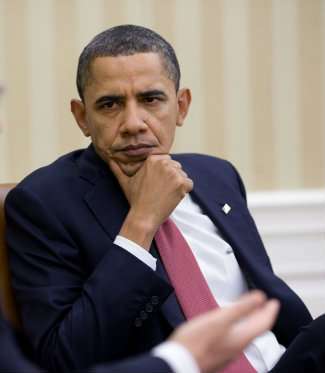Obama Dodges Questions About Delay of Health Law's Employer Mandate

When the Obama administration announced that it would be delaying Obamacare's employer mandate and reporting requirements by a year, critics—including one of the law's Democratic authors—questioned whether the decision was actually legal. The law provided no authority for the administration to delay the provisions, and explicitly stated that the requirement was to go into effect in 2014.
The Treasury Department, which was officially responsible for delay of the law, eventually released a defense claiming authority based on a tax code provision that allows Treasury to write rules necessary to enforce laws and alteration of revenue-related laws. In an interview with The New York Times published over the weekend, President Obama declined to provide even that thin justification:
[Obama] rejected criticism that by delaying the [employer mandate] provision he had exceeded his constitutional authority.
"This is the kind of routine modifications or tweaks to a large program that's starting off that in normal times in a normal political atmosphere would draw a yawn from everybody," Mr. Obama said. "The fact that something like this generates a frenzy on Republicans is consistent with the fact that they've voted to repeal this thing 38 times without offering an alternative that is plausible."
Mr. Obama said members of Congress who questioned his power to delay the provision should "make that case." But he pointedly suggested that the criticism had less to do with the substance of the issue and more to do with political efforts to undermine his presidency.
None of this really answer the question, does it? If Obama believes the delay of the mandate is within the administration's authority, he ought to be able to offer a clear explanation of why. That he has declined to do so, and that the administration declined to send a representative to a recent congressional hearing on the employer mandate, does not exactly suggest that they have a compelling explanation.
In general, the administration does not seem to have a clear idea of how it plans to handle the delay. I'm told a recent meeting between Treasury employees and Hill staffers erupted into shouting when Treasury dodged or declined to answer basic questions about how the delay would affect implementation of the law. In some ways, delaying the employer mandate and reporting will make implementing the law easier. But it also creates a number of additional questions about, say, how to manage the law's subsidies without health coverage and income information from employers. And right now it's not at all clear that the Treasury has figured out how it's all going to work. In general, the strategy from the administration seems to be to just do what it wants, figure out the details later, and dodge inconvenient questions along the way.


Show Comments (23)